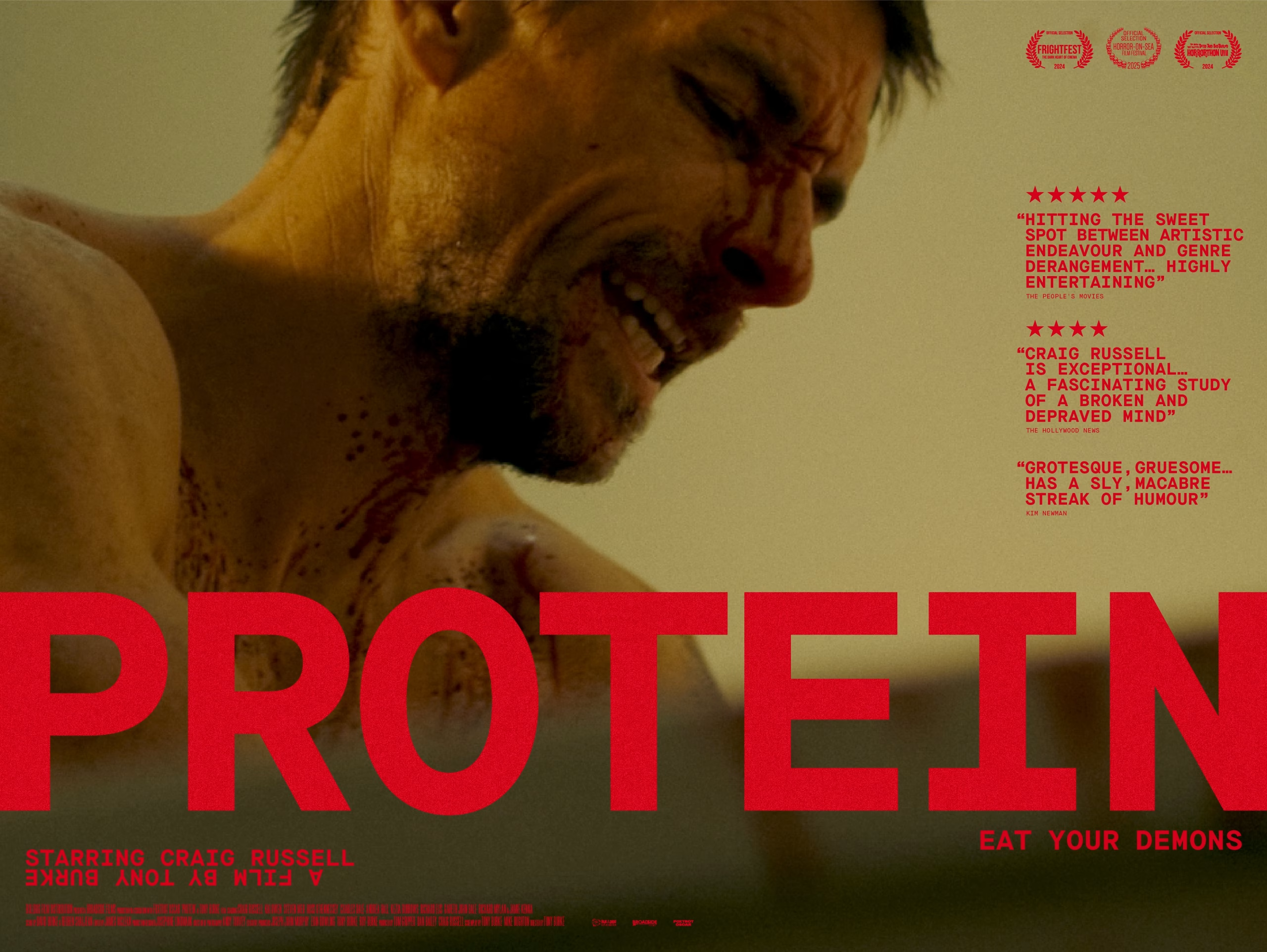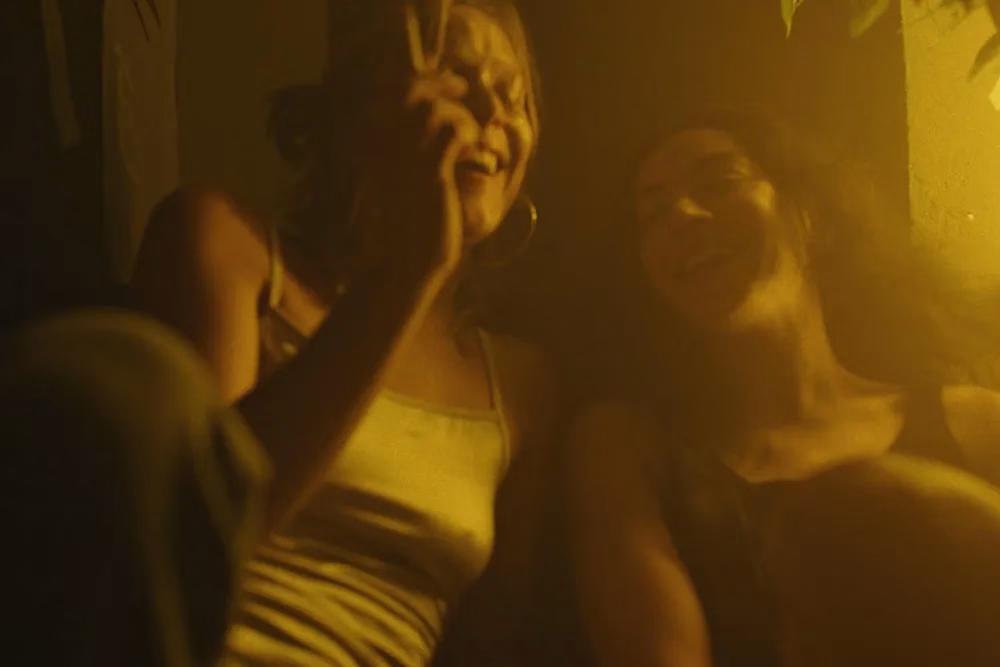Directed by Tony Burke, Protein is a chilling crime-horror hybrid set in the bleak Welsh countryside. The film follows Sion (Craig Russell), a muscle-obsessed former soldier with PTSD, whose life spirals after he kills a drug dealer in a moment of madness—and eats him. This single act of frenzy triggers a chain reaction of violence in a small town. Sion’s fixation on protein becomes a lens for exploring societal collapse, the myth of masculinity, and survival instincts.
Burke’s story is both unsettling and ironically funny. The director masterfully extracts dark humor from brutality, leaving viewers with an uneasy mix of repulsion and amusement. The misty, damp streets of rural Wales transform into crime scenes, with the characters’ loneliness and inner decay expertly embedded in the landscape. Visually, the film blends the raw energy of Trainspotting with the grotesque oddity of The League of Gentlemen.
Sion’s story serves as a disturbing allegory for the fragility of masculinity. In trying to control his muscles, diet, and rage, he ends up consuming his own limits—both figuratively and literally. Craig Russell carries Sion’s quiet yet explosive energy with remarkable balance, while supporting actors Kezia Burrows, Steve Meo, and Charles Dale lend authenticity to this dark universe. Burke keeps dialogue minimal, letting facial expressions, silences, and the town’s gray texture convey the characters’ inner worlds.
Protein is more than a crime story; it’s a narrative of societal decay, a world where masculinity fails its test, and trauma’s unprocessed return to the body. Violence here isn’t spectacle—it’s the manifestation of the characters’ inner hungers. Burke uses humor precisely at this juncture, exposing the absurdity of violence and the inconsistency of human nature.
Though it starts as a slow-burn crime thriller, the film gradually bares the sharp teeth of dark comedy. The quiet of rural Wales clashes with bursts of bloody conflict. The cinematography captures this contrast, showcasing both beauty and ugliness in every frame. Protein doesn’t just horrify—it provokes thought. This isn’t a monster’s origin story but a film about a society silently devouring itself.
For a debut feature, Protein displays striking directorial discipline. Its pacing, economical dialogue, and sense of humor elevate it beyond a genre experiment, establishing Burke as a distinctive voice in contemporary British cinema. The film weaves themes of masculinity, rage, trauma, and loneliness with finesse, leaving a grotesque yet lasting impression.
Ultimately, Protein is a dark, unsettling, yet brilliantly clever film. It treats violence not as spectacle but as a societal symptom. Burke’s bloody laboratory in the Welsh countryside tests the limits of both the human body and society. Films that blend dark humor and crime aesthetics so elegantly are rare; Protein lingers in the gut long after digestion, precisely because of this.














